Diving with sharks is considered by many to be one of the most extreme forms of scuba diving there is.
Experienced divers will often travel thousands of miles to enjoy the adrenaline thrill of meeting one or more of nature’s apex predators in their natural environment.
Most scuba divers these days are aware that sharks are not any real threat to their safety.
So if we shouldn’t be scared of sharks, are they scared of us?
We’re going to how sharks can react to scuba divers.
We’ll see that sharks can be curious but generally will be wary and leave what they don’t understand alone, including scuba divers.
Human actions can affect how sharks behave towards divers.
Depending on the circumstances, some shark species can be more attentive than others.
We will consider diving safely with sharks and look at the facts involving sharks and scuba diving.
- Are Sharks Scared of Scuba Divers?
- Are Some Sharks More Curious Than Others?
- Do Sharks Bother Scuba Divers?
- Are Any Sharks Aggressive Towards Scuba Divers?
- Are Sharks Scared of Scuba Bubbles?
- What To Do if a Shark Approaches You?
- Should I Actively Scare Sharks Away?
- Are Divers Safe From Sharks?
- How Many Scuba Divers Get Attacked by Sharks?
- Conclusion
- You Might Also Like…
Disclosure: this post contains affiliate links (clearly marked with ), which means we may earn a commission if you buy something through them, at no additional cost to you.
Are Sharks Scared of Scuba Divers?
It’s not correct to say that sharks are specifically scared of scuba divers.
To suggest that sharks are “scared” or even -on the other hand – “aggressive”, means that we’re giving in to the idea that these animals are acting with premeditated thought towards us.
Instead, we need to remember that sharks are driven by their senses and instinct when presented with any situation.
They can appear inquisitive as they use their multiple senses to try and assess an encounter.
Typically, once they have been able to consider the situation, they will display sensible reactions.
Most sharks are the top, or apex, predators in their particular environment.
They usually don’t have anything out hunting them, except perhaps for other larger sharks.
However, even with that said, most sharks are incredibly cautious and will generally flee the area if they don’t understand something.
Depending on the environment, it is common for sharks to appear scared by scuba divers.
The best way to understand this is to consider how a shark uses its senses underwater and why they often lead them to avoid humans and their activities whenever possible.
Shark’s Sensory Mechanisms
Sharks have several extremely keen senses that they can use to locate food and assess any encounter that they come across.
1. Hearing
Hearing is the sense that operates over the longest distance for sharks.
It is known that they can detect low-frequency pulsating sounds over several miles underwater.
2. Smell
Sharks have receptors that are extremely sensitive to specific molecules in the water, allowing them to detect and follow interesting scent trails over large distances.
3. Sight
Sharks have highly evolved vision that is adapted to work effectively in low light conditions.
It is said that a shark’s sight can be up to ten times more effective in low light than a human’s.
4. Pressure and Movement
Sharks have a sense organ called the lateral line system that runs down their sides and detects changes in water pressure and movement.
This organ allows sharks to detect large movements over distances up to 320 feet / 100 m away.
5. Electrical and Magnetic Activity
Sharks have pores on their nose and lower jaw that are sensitive to electric current and magnetic fields.
A shark can use these to detect the location of prey close by and also to navigate via the earth’s magnetic field.
Divers electrical equipment, including cameras, can produce electrical signals that a shark may find interesting.
6. Touch
Sharks are extremely sensitive to touch and use this as their penultimate test to assess if something is edible.
7. Taste
Sharks have similar taste mechanisms to humans.
They can detect sweet, salt, bitter and sour.
A shark will often mouth an object cautiously if it is unsure if its food or not.
The Senses When a Shark Encounters Scuba Divers
We can see why sharks might appear “scared” of scuba divers by considering these senses in order.
If a shark encounters a group of divers, they are likely to set off many alarm bells that cause the shark to flee.
The shark’s sensitive hearing will probably be receiving a deluge of information.
Noise from multiple divers’ regulators bubbles, excited shouts through mouthpieces and tank bangers, rattles, and other noisemakers will probably be off-putting.
Certainly, divers won’t sound like something exciting or edible.
It’s likely that scuba divers won’t be emitting any recognizable food smells underwater.
The sight of scuba divers in a group will certainly not look like food to a shark and will possibly appear to be something relatively large that could be threatening.
The shark’s pressure and movement detectors will be receiving all kinds of information from the divers finning, which will likely appear confusing and definitely not edible.
Finally, as we are not getting close to the realms of touch or taste, electrical and magnetic information will be intensely received.
Cameras buzzing and flashing and the magnetic interferences from all the various metal equipment carried by divers will give the shark another confusing image to contend with.
All in all, we can see why sharks might often appear scared of scuba divers.
With the barrage of information that their senses receive when they meet a group of divers, the shark acts quite sensibly and gets out of the area.
Are Some Sharks More Curious Than Others?
While sharks are typically highly cautious towards divers and pose little realistic threat, some species are bolder than others and can be made more so depending on the circumstances.
We have to remember that a shark’s behaviors will be affected by where the scuba diver is, what they are doing and how they react.
For example, a scuba diver who is part of a group close to the reef will be less likely to receive attention than a solo diver who is out in open water.
Even when sharks show an interest in scuba divers, they will approach very carefully.
Remember that they are approaching something large, loud, and unknown.
So they will approach very cautiously to protect themselves and avoid injury.
Sharks that may be more curious towards scuba divers include Oceanic Whitetips and Bull Sharks.
The most likely reason for sharks to become curious is from human activities in the area.
Fishing, spearfishing, shark or fish feeding, or dumping waste food into the water will all encourage sharks to overcome their instincts and approach scuba divers to see if they are the source of the interesting smells.
Shark feeding by divers, in particular, encourages sharks to associate scuba divers with food.
Where feeding takes place frequently, instead of being put off by the noise and other sense stimulations, the shark may be attracted to divers in the belief that they will get food.
Do Sharks Bother Scuba Divers?
For most scuba divers, a close-up encounter with a shark might raise the pulse but is usually enjoyable and even desirable.
Close-up encounters can be exciting, but usually, this is just the case of the shark continuing to use its senses to try and work out what precisely the diver is.
When a shark calmly circles a scuba diver, it is using its lateral line system to assess the unknown object.
Typically, the shark will circle once or twice and then turn away unless the diver does something that attracts another of the shark’s senses.
Sharks that have been encouraged by human activities, such as feeding, can exhibit behavior that can appear more than curious.
Because sharks don’t have hands, they will use their mouths as a final test to see if something has an interesting taste.
It has been known for a scuba divers fin or SMB balloon to receive a nibble from a highly interested shark, particularly in areas where they have got used to being fed when there are divers.
Are Any Sharks Aggressive Towards Scuba Divers?
Perceived aggression from sharks is almost always a form of defense.
Sharks that are being harassed or chased by divers may act defensively just as many animals might.
Similarly, scuba divers in open water may receive interest from a shark looking for food or trying to determine what the diver is precisely.
Scuba diving in open water where there may be Great White, Oceanic Whitetip, Tiger, Bull, or Requiem sharks makes it more likely that you will receive the close attention of one of these sharks.
Under these circumstances, it’s important to act sensibly and avoid any actions that might encourage the animals to think there is food.
Signs that a shark may become aggressive include lowering its pectoral fins, lifting its nose, contorting the body into an ‘S’ shape, coming very close, and repeatedly bumping the diver.
Many sharks do most of their feeding at dusk and dawn, so encounters during these times may be more likely to experience overly inquisitive behavior.
Are Sharks Scared of Scuba Bubbles?
While they are perhaps not scared of scuba bubbles, the noise and movement created may be off-putting to a shark.
It is sometimes recommended that a diver use their alternate air source/octopus to blast bubbles at a shark getting uncomfortably close.
The movement and the expansion of the bubbles may cause enough confusion and discomfort in the shark’s lateral line system that they will flee.
However, in situations where a shark is curious enough and bold enough, divers find that their bubbles don’t seem to affect sharks like the Oceanic Whitetip in the slightest.
What To Do if a Shark Approaches You?
The most important thing is to remain calm and remember that it’s likely that the shark is just coming close so that it can use its senses to consider what you are and what all the noise is about.
Often a shark may circle once or twice and then leave you alone.
- Remain calm – The shark’s electrical senses can detect rapid changes in a heartbeat, which may be interpreted as a potential food source
- Avoid erratic, jerky, or rapid movements which might make you look like an injured animal
- If possible, while keeping a watch on the shark, get close to, or remain close to the reef
- Stay together with a group of divers rather than being solo in the water
- Keep a vertical position in the water rather than horizontal
- Never try to touch or harass the shark, as this might cause a defensive reaction
- If the shark appears to be becoming aggressive, keep it in sight and get ready to get out of the water
- Stay alert as you exit to what is going on around you, in particular below you
- Don’t attempt to photograph of film sharks that are acting with excessive curiosity, as the electrical activity may encourage them
- When you get to the surface, get out of the water as quickly as possible
Should I Actively Scare Sharks Away?
Unless you are feeling seriously threatened by a shark, it isn’t usually a good idea to try and scare it away as you will increase the risk of it becoming defensive.
If a shark gets too close, it can often be enough to push a wave of water with fins or a slate towards the animal.
If necessary, you can use a solid object such as a camera to fend it off by striking it on the nose.
However, these should be methods of last resort.
Are Divers Safe From Sharks?
Every year hundreds of thousands of scuba divers encounter sharks underwater without incident.
Incidents are extremely rare and are often the result of direct or indirect human behavior affecting the shark’s natural instincts.
We have to remember that divers are in no way an attractive food source to sharks.
The roughly 500 species of shark in the world have far more to fear from humans.
Overfishing has reduced shark populations by over 80%, and a considerable number of species worldwide are threatened with extinction.
Fortunately, scuba diving tourism is one of the most significant incentives to preserve sharks around the world.
As they travel to enjoy shark encounters, scuba divers have created a high-value economy that encourages countries to protect sharks.
How Many Scuba Divers Get Attacked by Sharks?
The International Shark Attack File (ISAF) records all known shark incidents.
The number of incidents involving sharks is very low each year.
There were a total of 57 unprovoked incidents in 2020, with only ten being fatal.
Only 4% (in 2020) of the total number of 129 bite incidents involved scuba divers compared, for example, to a surface activity like surfing, which had 61% of the total.
It is suggested that in 2019, there were approximately 2.71 million participants in scuba diving in the U.S alone, so this worldwide figure of five bite incidents involving divers in a year is very low for the number of dives made (in fact, it is about 2 in a million).
Conclusion
Shark encounters are one of the most magical experiences that a scuba diver can have underwater and are almost always no reason for concern.
Sharks are wary and will often be scared easily by divers.
The presence of divers quickly irritates a shark’s highly evolved set of senses.
Scuba divers shouldn’t be scared of sharks or other animals underwater.
They can be enjoyed as extraordinary natural encounters if you follow sensible practices and don’t try to feed, touch, or threaten them.
You Might Also Like…
-

How Do Scuba Divers Drink Water? 5 Possible Ways (+7 Tips)
-

How Long Can Scuba Divers Stay Underwater? (+9 Limiting Factors)
-
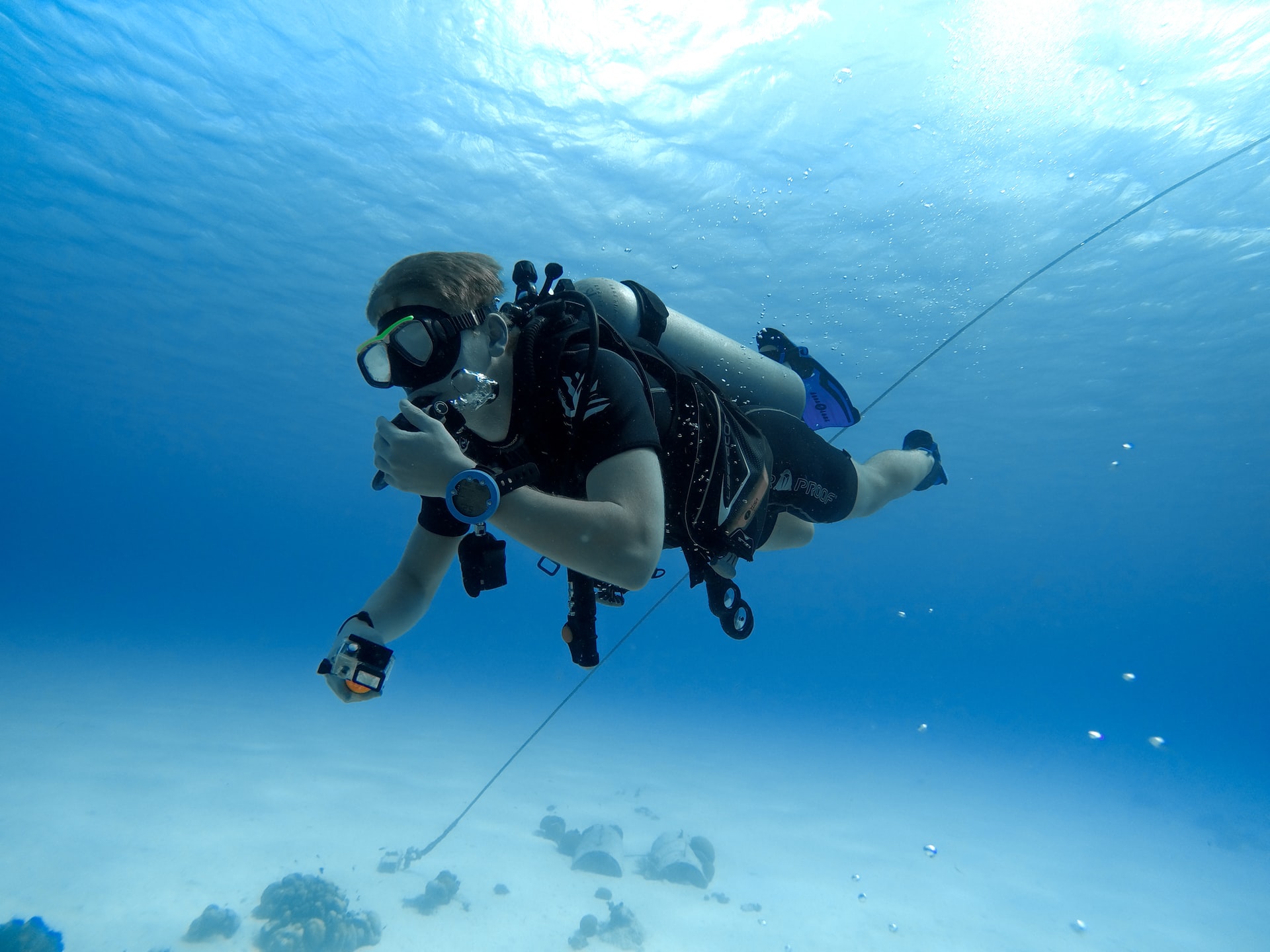
Are Scuba Divers Athletes? All the Facts (+New Competitive Forms)
-
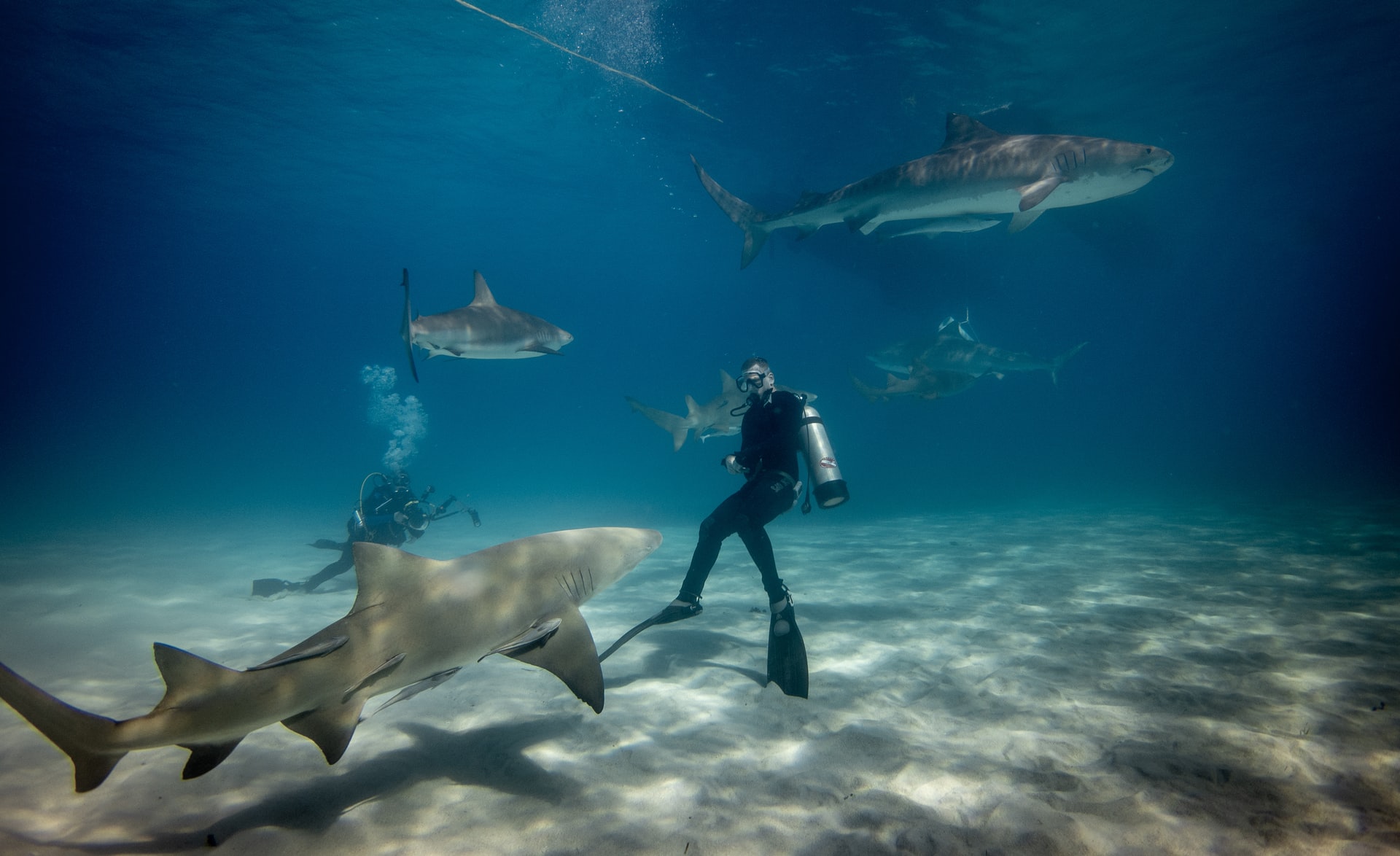
Are Sharks Scared of Scuba Divers? (What Every Diver Must Know)
-
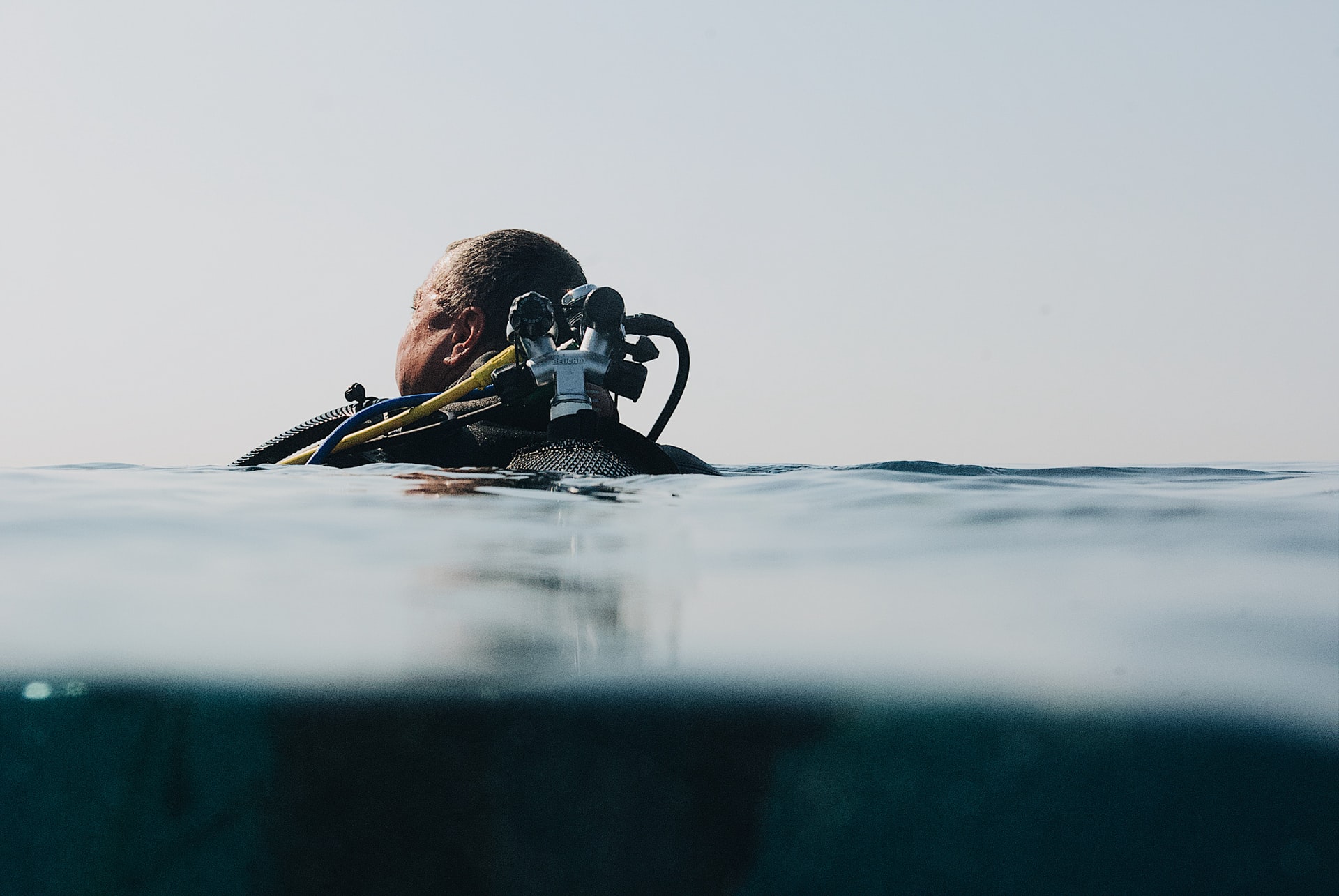
Who Should Not Scuba Dive? 17 Reasons (Every Diver Should Know)
-
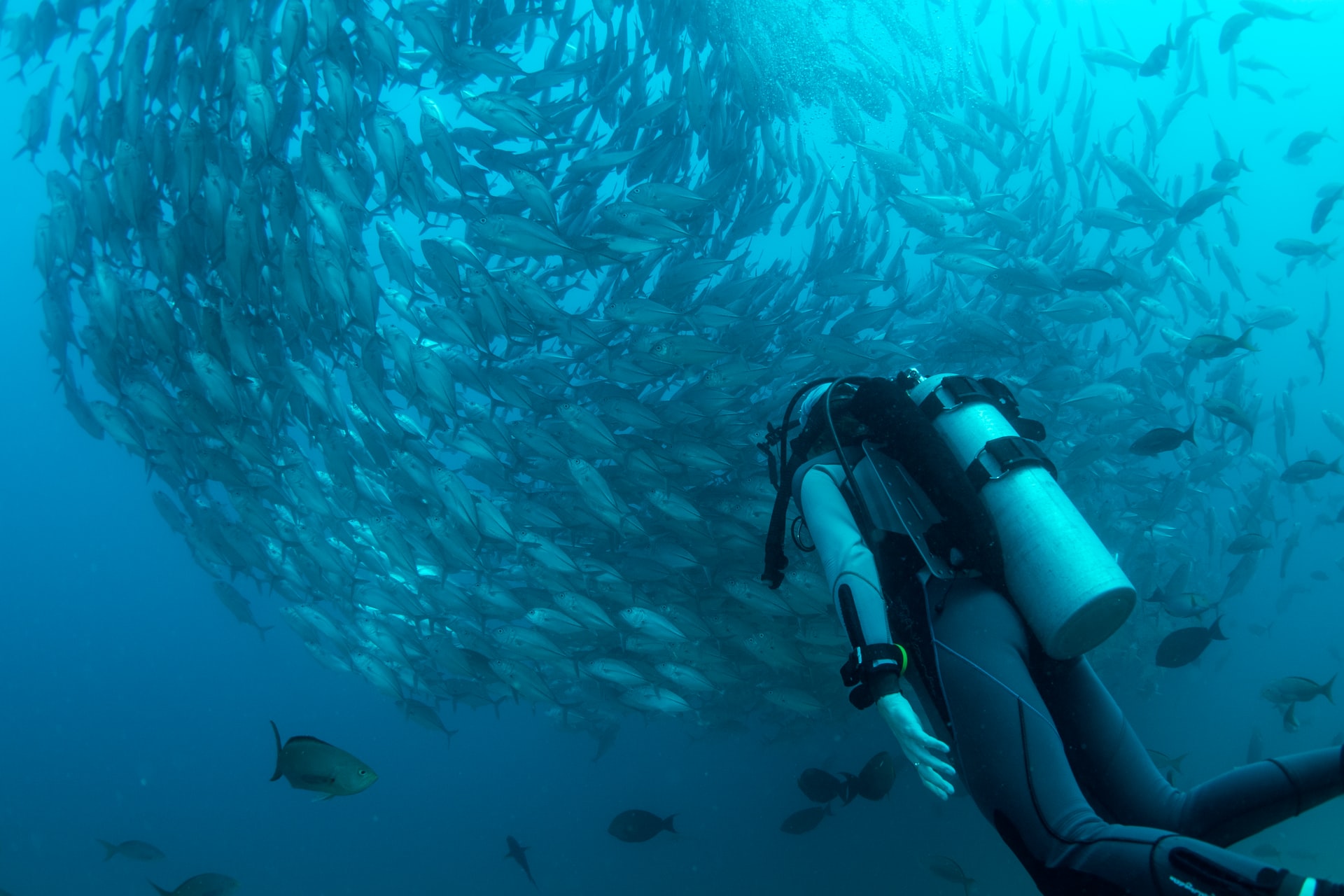
Should I Be Scared of Scuba Diving? 8 Common Fears (Debunked)
-
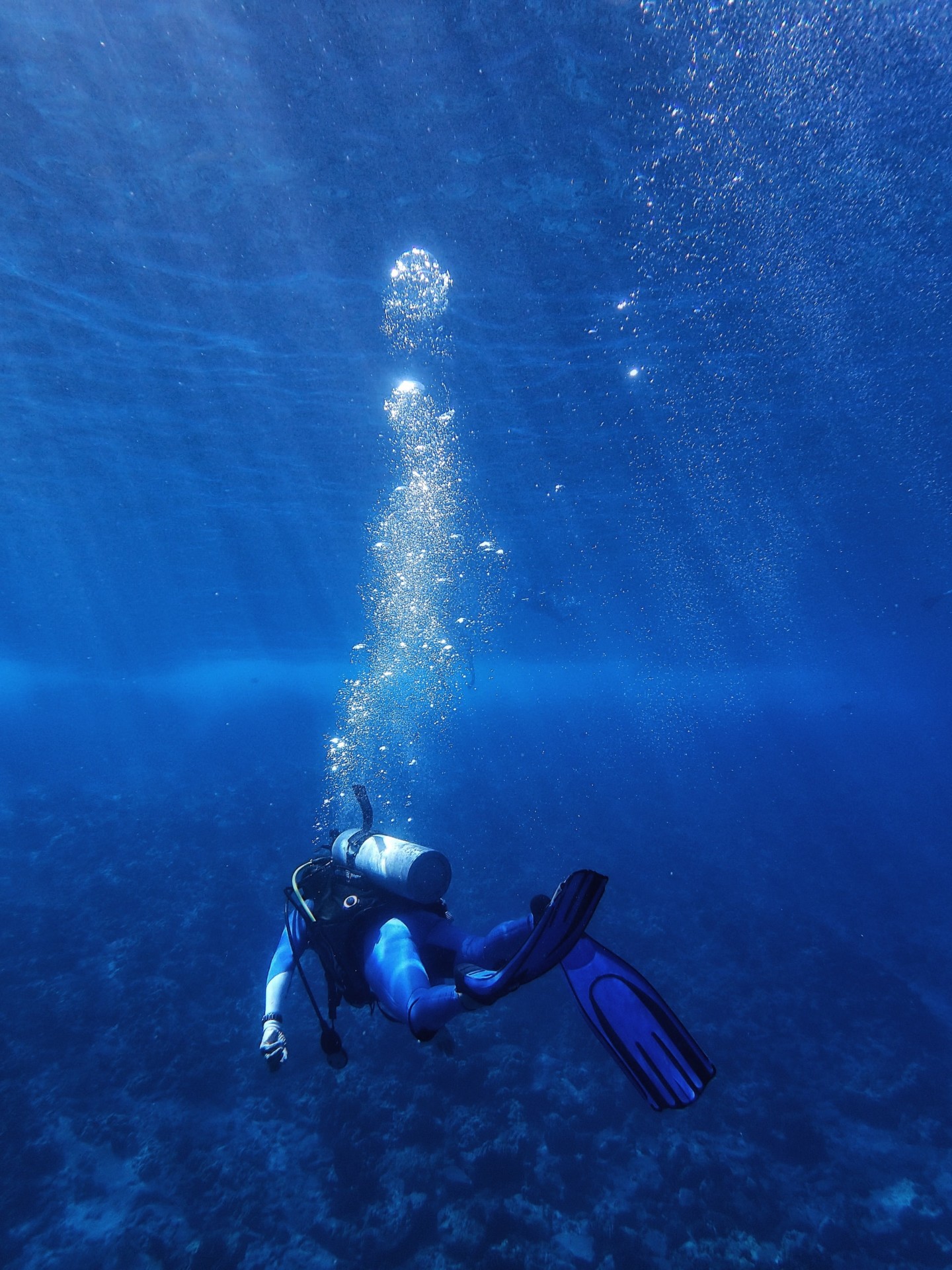
Why Do Scuba Divers Use More Air at Depth? (+4 Practical Tips)
-
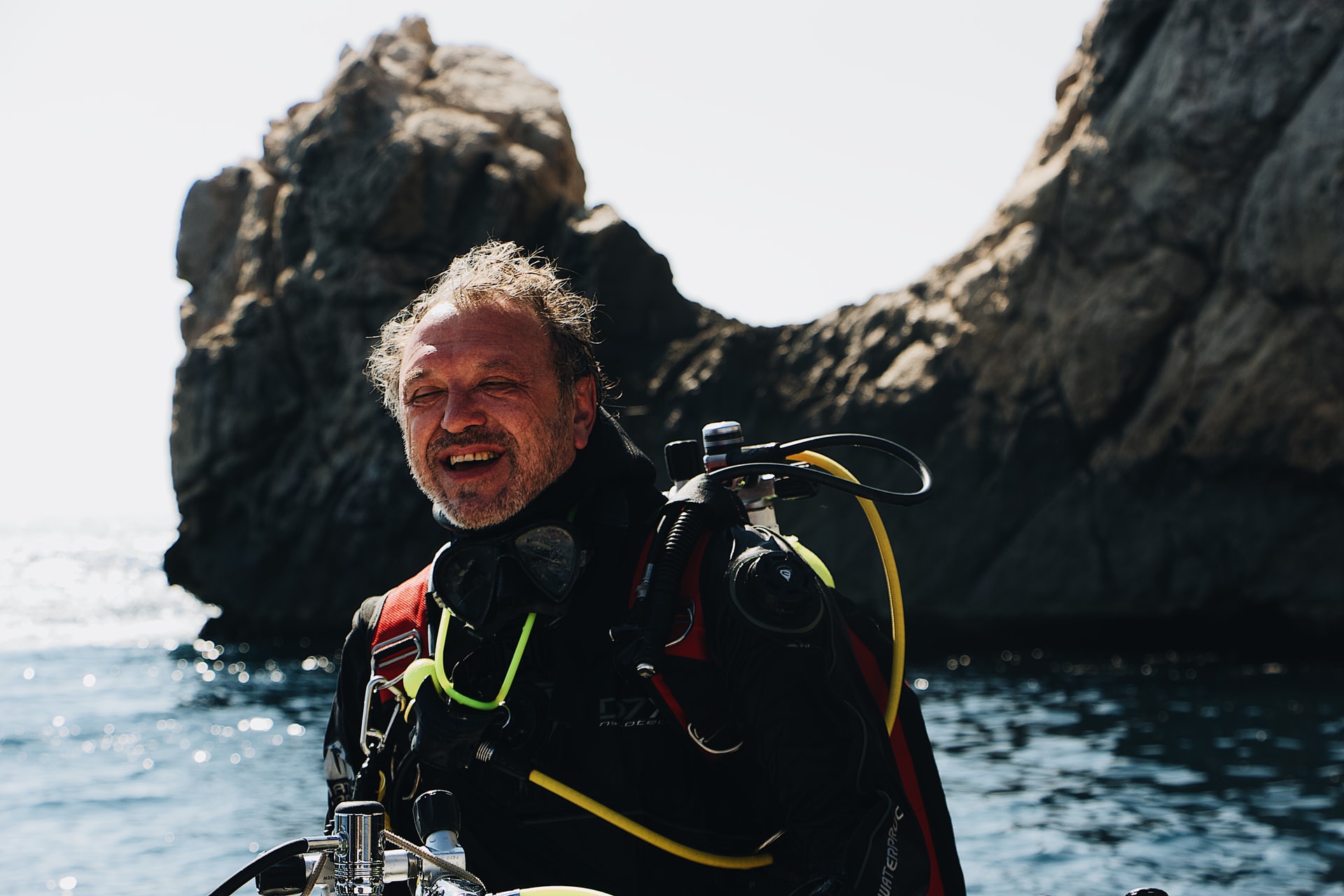
At What Age Should You Stop Scuba Diving? (+9 Tips for Older Divers)
-
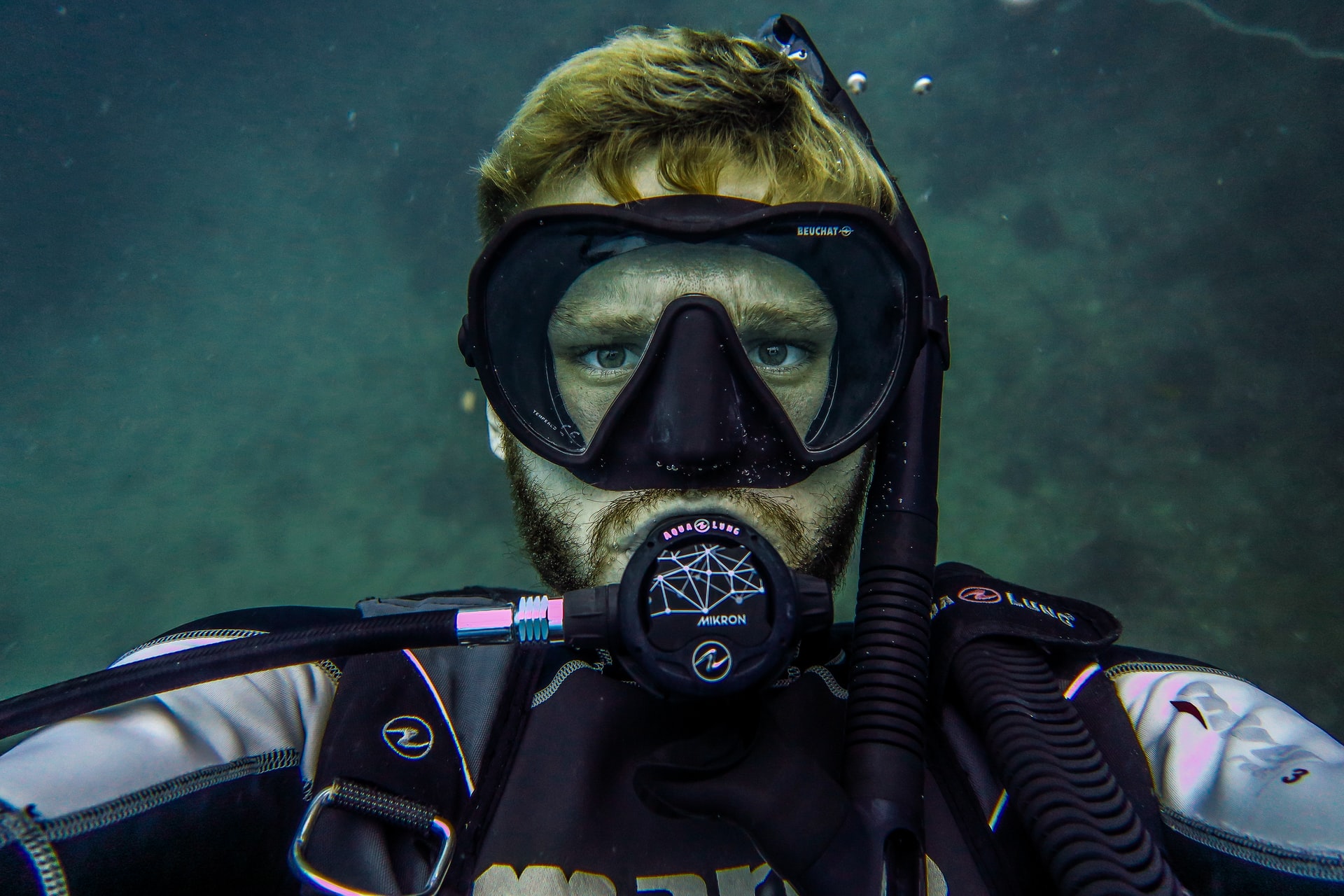
Should I Shave Before Scuba Diving? Crucial Facts (+9 Helpful Tips)
-
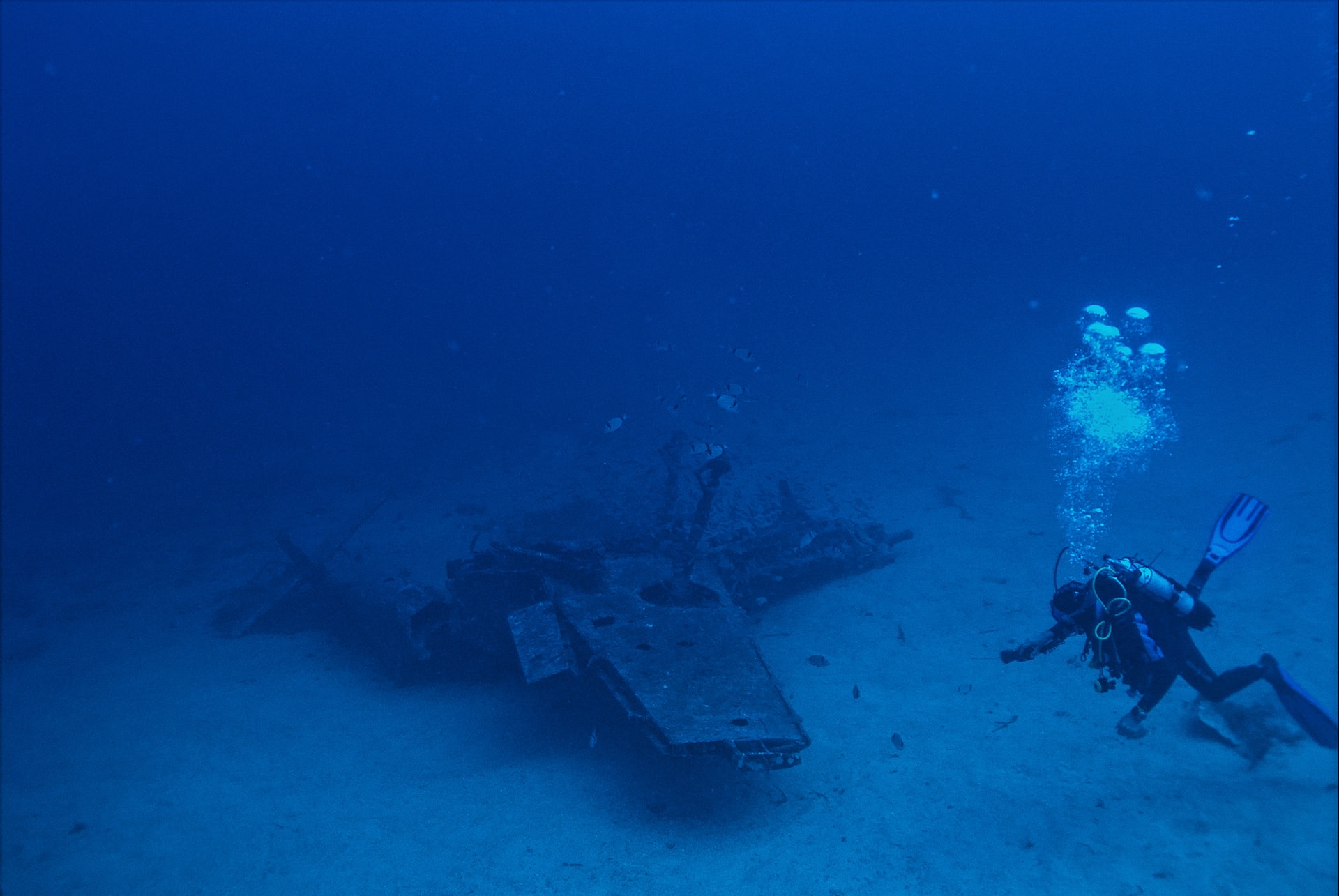
Why Do Scuba Divers Use Helium? (+Its Pros & Cons)
-
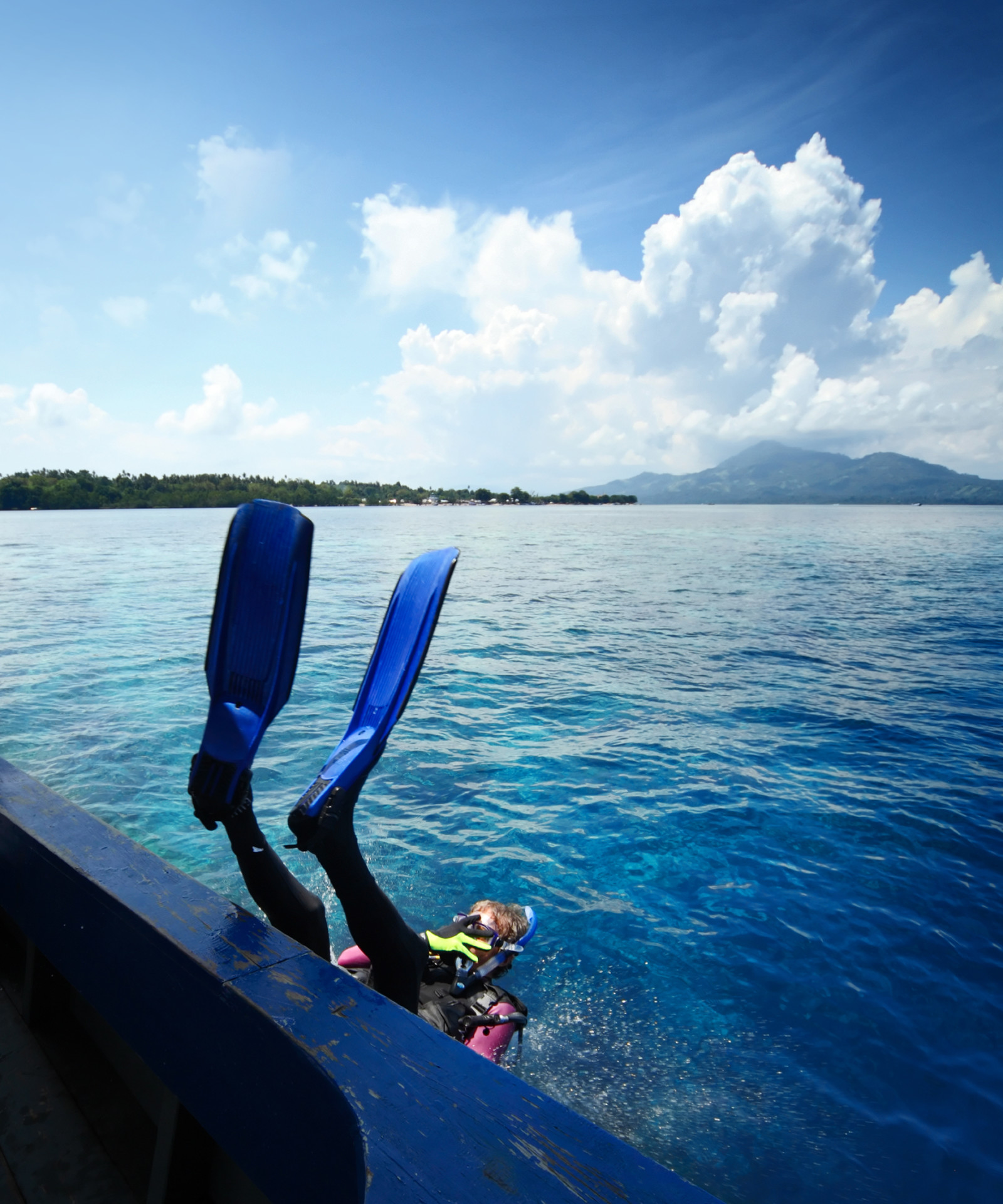
Why Do Scuba Divers Go in Backwards? (+3 Alternative Entries)
-
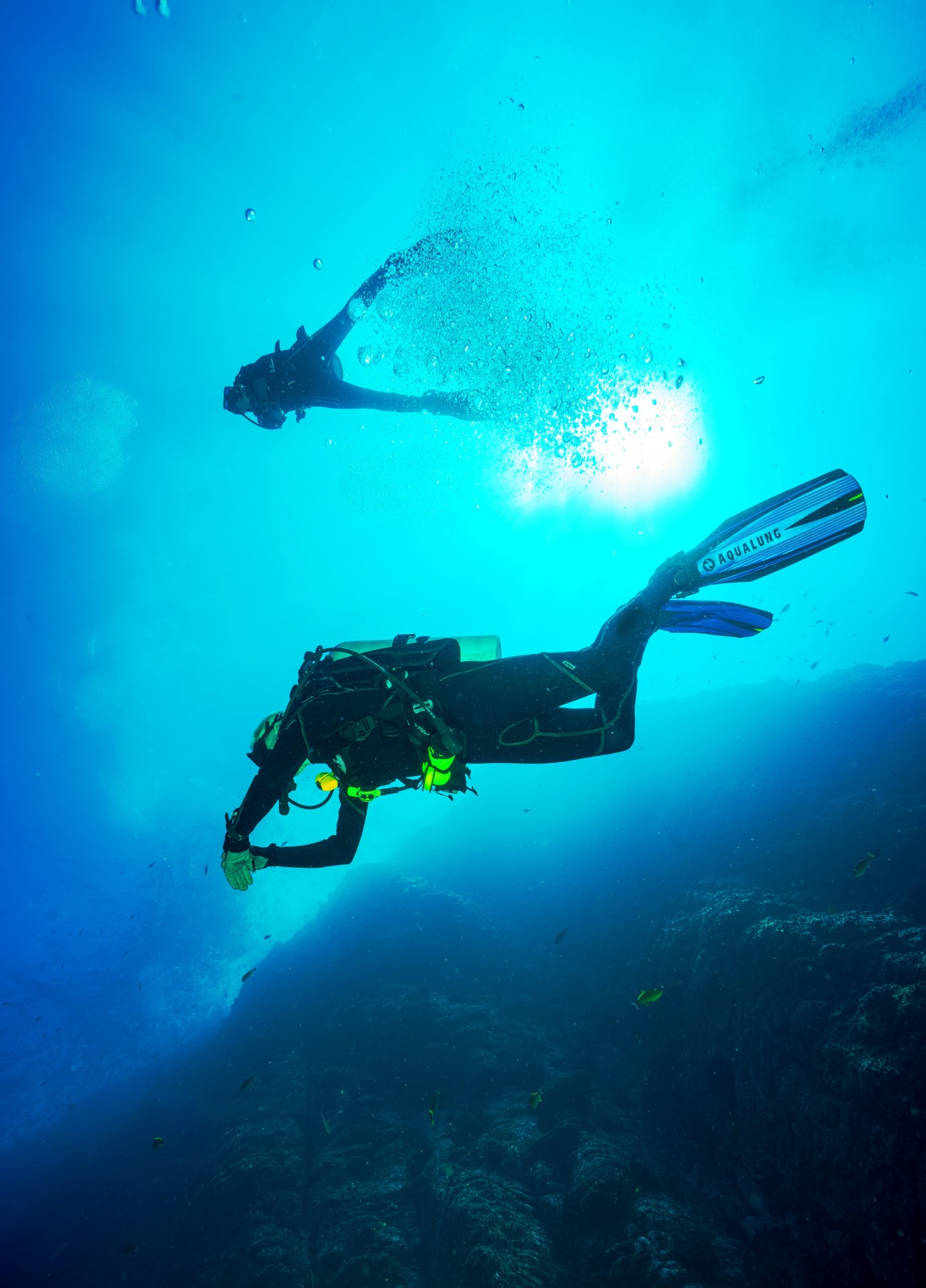
How Do Scuba Divers Sink and Float? (+Tips to Get It Right)









